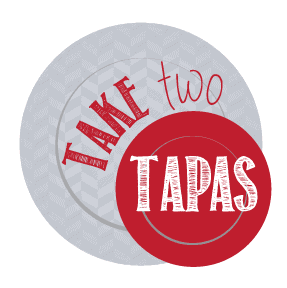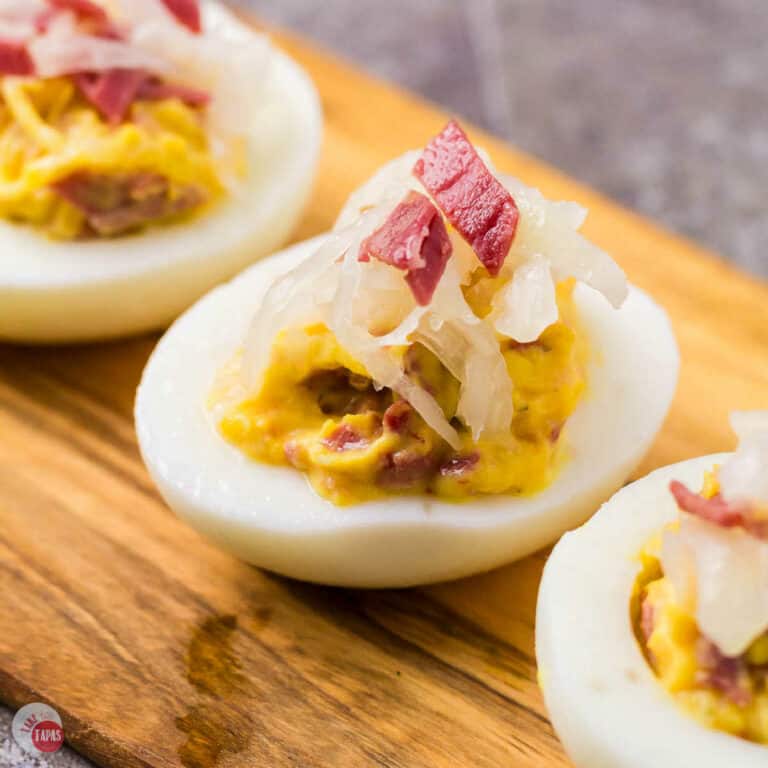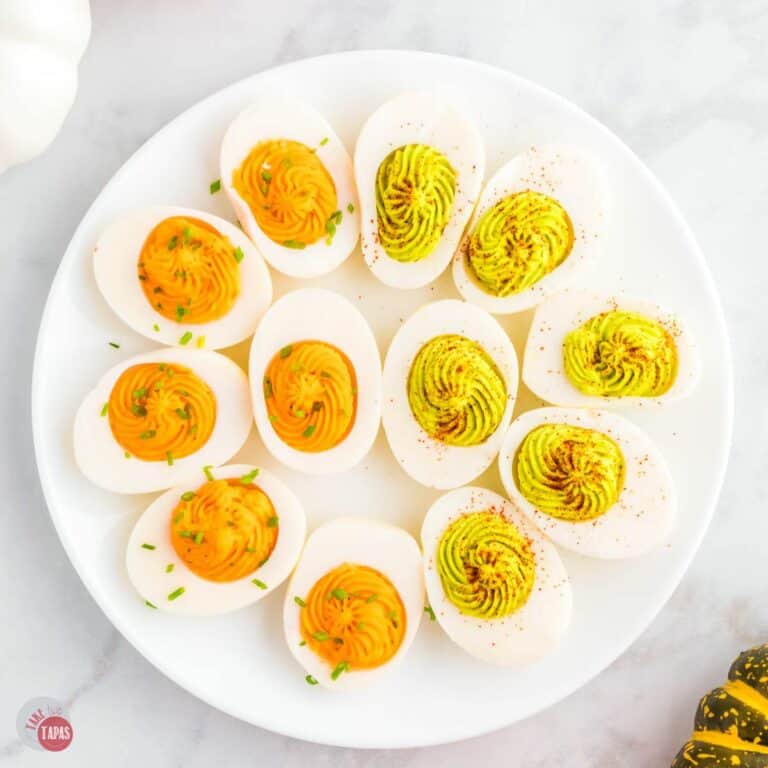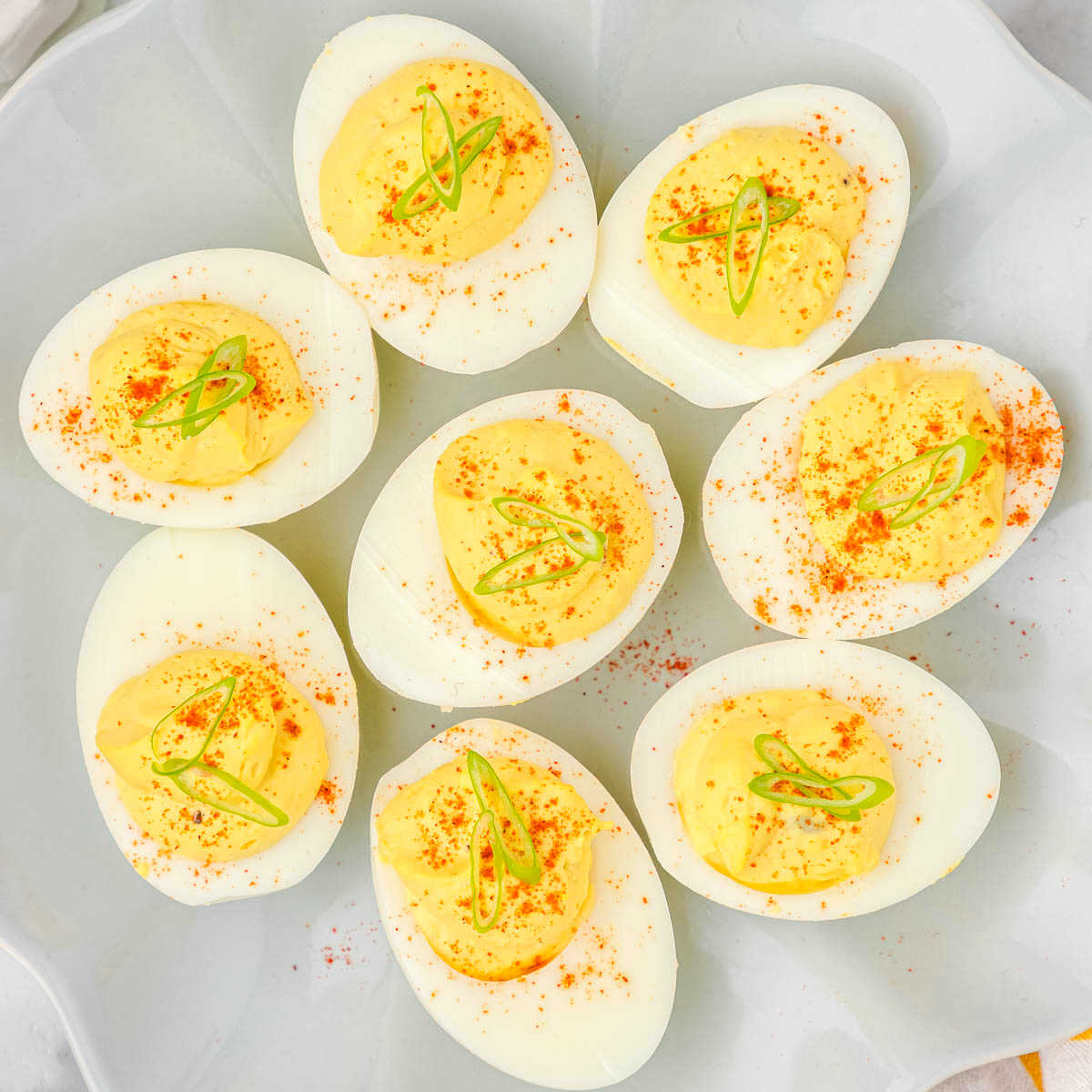Why Are They Called Deviled Eggs?
If you’ve ever wondered how deviled eggs got their sinister name, you’re not alone. For such a delicious egg recipe, the name “deviled” seems out of sorts. So why are they called Deviled Eggs?
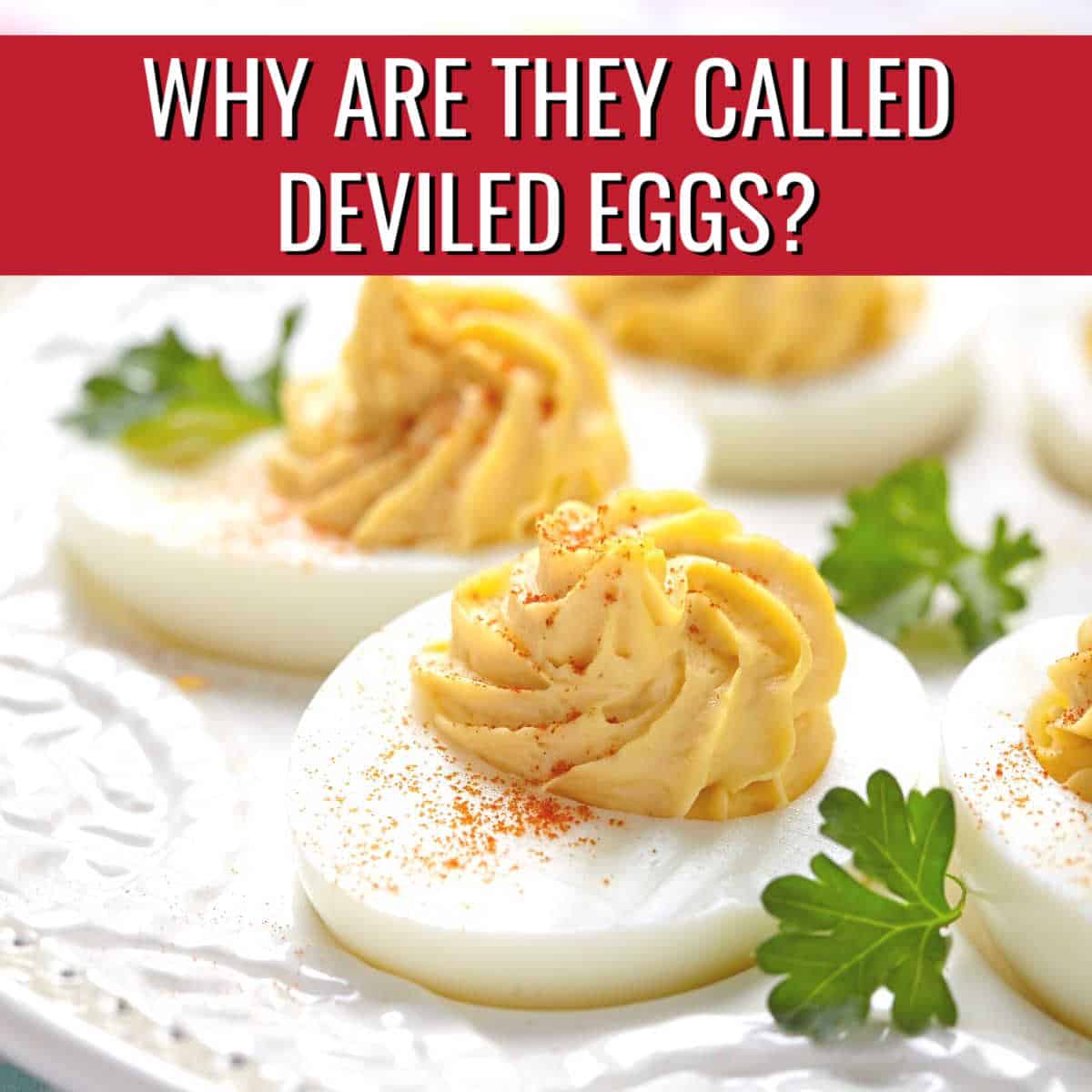
Deviled eggs are delicious hard-boiled eggs containing a creamy yolk mixture. The dish is usually topped with spicy seasonings like paprika and served as appetizers at the beginning of a meal.
They are also great for large gatherings like church functions, family gatherings, and potlucks.
So how did this popular appetizer and Southern Sunday school staple get its devilish name?
Where did deviled eggs originate?
Interestingly, this classic dish, which is such a staple across the United States, actually originated in Ancient Rome.
According to the North Carolina Egg Association, Ancient Romans boiled eggs and seasoned them with spicy sauces to serve to guests. Serving eggs was so common for the elite members of Roman society that it inspired the phrase “ab ova usque ad mala,” meaning “from eggs to apples.”
By the 15th century, stuffed hard boil eggs spread across Europe. Medieval cookbooks had recipes for boiled eggs filled with raisins, cheese, and herbs. Or frying eggs in oil and placing a tart juice made from unripe fruits called “verjuice” on top.
In the mid-19th century, stuffed eggs started to appear in U.S. cookbooks.
This post may contain affiliate links. As an Amazon Associate, I earn from qualifying purchases at no additional cost to you. Read my disclosure policy.

Why use the name deviled?
The word “deviled” doesn’t actually have to do with anything sinister. “Devil” is simply a culinary term that describes a highly seasoned dish.
According to the Food Lover’s Companion, to devil means to combine a food with various hot or spicy things like dijon mustard, Tabasco sauce, red pepper, cayenne pepper, or other hot sauces.
A recipe for Classic Deviled Eggs might not contain all these spicy ingredients but still use the name.
Even though the term “deviled” doesn’t actually have evil roots, some people still don’t like the negative connotations of the word and prefer to call the classic dish “salad eggs,” “angel eggs,” or “mimosa eggs.”
What do churches call deviled eggs?
Because the term “deviled” can have negative connotations, churches might use alternate names to avoid the term.
The dish is a popular picnic appetizer and an Easter tradition for many people throughout the United States. At these functions, some people will call them “stuffed eggs,” “dressed eggs,” or “salad eggs.”

What do they call deviled eggs in England?
Deviled eggs can go by many different names depending on where you are in the world. The also go by mimosa eggs, stuffed eggs, angel eggs, and dressed eggs. In Great Britain, deviled eggs is the common name.
How do you make deviled eggs?
Deviled eggs are super simple to make. All you need are the following ingredients:
- Large Eggs
- Mayonnaise
- White Vinegar (or apple cider vinegar)
- Yellow Mustard
- Paprika
- Salt and Black pepper
To make the eggs, start by placing the eggs in a single layer saucepan. Cover the eggs with water and use high heat until it boils. Once the water is boiling, cook for one minute on low.
Rinse them in cold water or place them in an ice bath after you hard boil them. Then, peel the eggs and cut them lengthwise.
Remove the egg yolks and place them into a mixing bowl. Combine the egg yolks with mayonnaise, vinegar, mustard, salt, and pepper.
Evenly distribute the yolk mixture in the yolk cavity of each of the egg whites with a small spoon. You can also use a piping bag with a star tip and pipe the mixture into the white halves.
Sprinkle a little paprika on top, serve at room temperature, and enjoy! That’s it!
If you end up with some leftovers, the easiest way to save the deviled eggs for later is to store them in the fridge in an airtight container or on a platter covered with plastic wrap.
5 Star Deviled Egg Recipes
These are my most popular deviled egg recipes and they have 5 star reviews from readers. Try them and judge for yourself.
If you want to see the rest of the delicious egg recipes, click the link.
If you love this recipe as much as I do, please leave us a five-star review in the comment section below. Thanks!

They are so versatile and have a rich history. Traditional deviled eggs have come a long way in becoming the zesty food we know and love today. Now, at your next party, you can pull out some of the interesting facts about deviled eggs to impress all of your friends!
©TakeTwoTapas.com. Content and photographs are copyright protected. Sharing of this recipe is both encouraged and appreciated. Copying and/or pasting full recipes to any social media is strictly prohibited.
